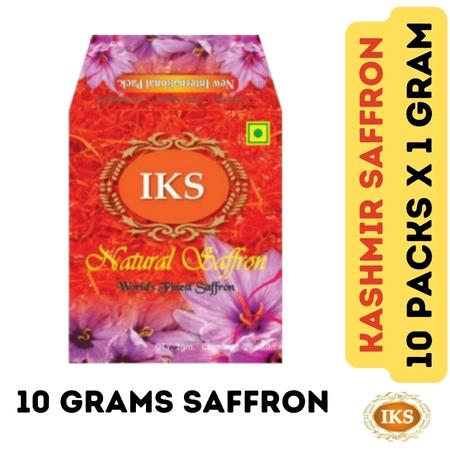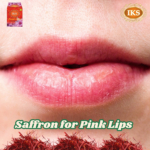How to Consume Saffron During Pregnancy: Safe Usage of Saffron for Pregnant Women
How to Consume Saffron During Pregnancy: Safe Usage of Saffron for Pregnant Women
How to Consume Saffron During Pregnancy – During pregnancy, the body undergoes numerous changes, and nutrition plays a crucial role in ensuring the health and well-being of both the mother and the baby.
Saffron, a spice celebrated for its vibrant color and rich aroma, is more than just a culinary delight. This golden spice offers a range of benefits that can be particularly valuable during pregnancy.
From enhancing mood and aiding digestion to improving sleep quality, saffron can be a beneficial addition to an expectant mother’s diet when consumed safely and in moderation.
In this guide, we will explore how to incorporate saffron into your pregnancy regimen to harness its potential health benefits while ensuring safety for both you and your baby.
Discover the Benefits of Saffron During Pregnancy 🌿👶
Why Saffron is Beneficial During Pregnancy
Nutritional Value of Saffron
Saffron is packed with essential nutrients that are beneficial for both the mother and the developing baby:
- Vitamins: Saffron is a good source of vitamins like vitamin A, which supports vision and immune function; vitamin C, which acts as an antioxidant and aids in collagen formation; and folic acid, which is crucial for preventing neural tube defects.
- Minerals: This spice provides important minerals such as potassium, which helps maintain fluid balance and blood pressure; magnesium, which supports muscle and nerve function; and iron, essential for preventing anemia and ensuring proper oxygen transport to the baby.
- Antioxidants: Saffron contains powerful antioxidants like crocin, picrocrocin, and safranal. These compounds help protect the body from oxidative stress and inflammation, promoting overall health and well-being.
Health Benefits of Saffron During Pregnancy
- Mood Enhancement Saffron has been shown to improve mood and reduce symptoms of depression. During pregnancy, hormonal changes can lead to mood swings, and saffron can help balance these emotions by increasing serotonin levels in the brain.
- Digestive Aid Morning sickness and digestive discomfort are common during pregnancy. Zaffran can aid digestion and help reduce nausea and vomiting, making it a valuable addition to the diet of expectant mothers.
- Anti-Inflammatory Properties The anti-inflammatory properties of saffron can help alleviate joint pain and swelling, which are common complaints during pregnancy. This can contribute to overall comfort and well-being.
- Improved Sleep Quality Saffron can promote relaxation and reduce anxiety, leading to better sleep quality. Adequate rest is crucial for a healthy pregnancy, and incorporating saffron into your diet can help you achieve more restful sleep.
Boost Your Pregnancy Wellness with Saffron 🌟🤰
How to Safely Consume Saffron During Pregnancy
Recommended Dosage
While saffron offers numerous benefits, it is essential to consume it in moderation to avoid potential side effects:
- Moderation is Key: Experts generally recommend consuming no more than a few strands of saffron (about 5 to 7 strands) per day during pregnancy. Excessive consumption can lead to adverse effects such as dizziness, nausea, and even uterine contractions.
- Consult Your Doctor: Before adding saffron to your diet, consult with your healthcare provider to ensure it is safe for you and your baby. Every pregnancy is unique, and it is important to get personalized advice from a medical professional.
Ways to Incorporate Saffron into Your Diet
Saffron Milk
Saffron milk is a popular and soothing way to consume saffron during pregnancy. Here’s how to prepare it:
- Ingredients:
- 1 glass of warm milk
- 2-3 strands of kesar
- Honey or sugar to taste (optional)
- Instructions:
- Warm the milk in a saucepan over low heat. Avoid boiling the milk as this can degrade the nutrients.
- Add the saffron strands and let them steep for a few minutes until the milk takes on a golden hue.
- Sweeten with honey or sugar if desired.
- Enjoy your saffron-infused milk, preferably before bedtime to promote relaxation and sleep.
Saffron in Cooking
Saffron can enhance the flavor and nutritional value of various dishes. Here are a few ideas for incorporating saffron into your cooking:
- Rice Dishes: Add a few strands of saffron to your biryani or pulao for a fragrant and delicious meal. The saffron will infuse the rice with its distinct color and flavor, making it a feast for both the eyes and the taste buds.
- Soups and Stews: Incorporate saffron into soups and stews for a rich, aromatic flavor. Saffron pairs well with ingredients like chicken, vegetables, and lentils, adding depth and warmth to your dishes.
- Desserts: Use saffron to flavor desserts like kheer, phirni, and saffron-infused cakes. The subtle sweetness and exotic aroma of saffron can elevate your desserts to a whole new level.
Saffron Tea
Saffron tea is another simple and soothing way to enjoy the benefits of saffron. Here’s a quick recipe:
- Ingredients:
- 1 cup of hot water
- 2-3 strands of saffron
- Honey or lemon to taste (optional)
- Instructions:
- Steep the saffron strands in hot water for a few minutes until the water takes on a golden color.
- Sweeten with honey or add a splash of lemon if desired.
- Enjoy your soothing saffron tea, which can help alleviate nausea and promote relaxation.
Unlock the Secrets of Saffron for Expectant Mothers 🔑🌸
Precautions and Considerations
Potential Side Effects
While saffron is generally safe when consumed in moderation, it is essential to be aware of potential side effects:
- Allergic Reactions: Some individuals may be allergic to saffron and experience symptoms like itching, rash, or difficulty breathing. If you suspect an allergic reaction, discontinue use and consult your healthcare provider immediately.
- Overconsumption Risks: Consuming large amounts of saffron can lead to adverse effects such as dizziness, nausea, and even uterine contractions, which can be harmful during pregnancy. Always adhere to the recommended dosage and consult your doctor if you have any concerns.
Quality Matters
To ensure the maximum benefits of saffron, it is important to choose high-quality saffron and store it properly:
- Purchase High-Quality Saffron: Ensure you buy pure, high-quality IKS saffron from a reputable source to avoid adulteration. Look for saffron that has a deep red color and a strong aroma, as these are indicators of quality.
- Storage: Store saffron in an airtight container in a cool, dark place to preserve its potency and flavor. Proper storage can help maintain the quality of saffron for a longer period.
10 GRAMS PURE ORIGINAL AUTHENTIC PREMIUM BEST QUALITY IKS KASHMIRI SAFFRON (KESAR) FOR CONSUMPTION DURING PREGNANCY
Conclusion
Saffron is a valuable spice that can offer numerous health benefits of kesar during pregnancy when consumed safely and in moderation. Its rich nutritional profile, coupled with its ability to enhance mood, aid digestion, and promote better sleep, makes it a valuable addition to an expectant mother’s diet. However, it is crucial to consult with your healthcare provider before incorporating saffron into your pregnancy regimen to ensure it is safe for you and your baby.
By following the guidelines provided in this article, you can enjoy the benefits of saffron while ensuring a healthy and happy pregnancy. Remember, moderation is key, and always prioritize your well-being and that of your baby.
Transform Your Pregnancy Diet with Saffron 🌼🍛











Leave a Reply
Want to join the discussion?Feel free to contribute!